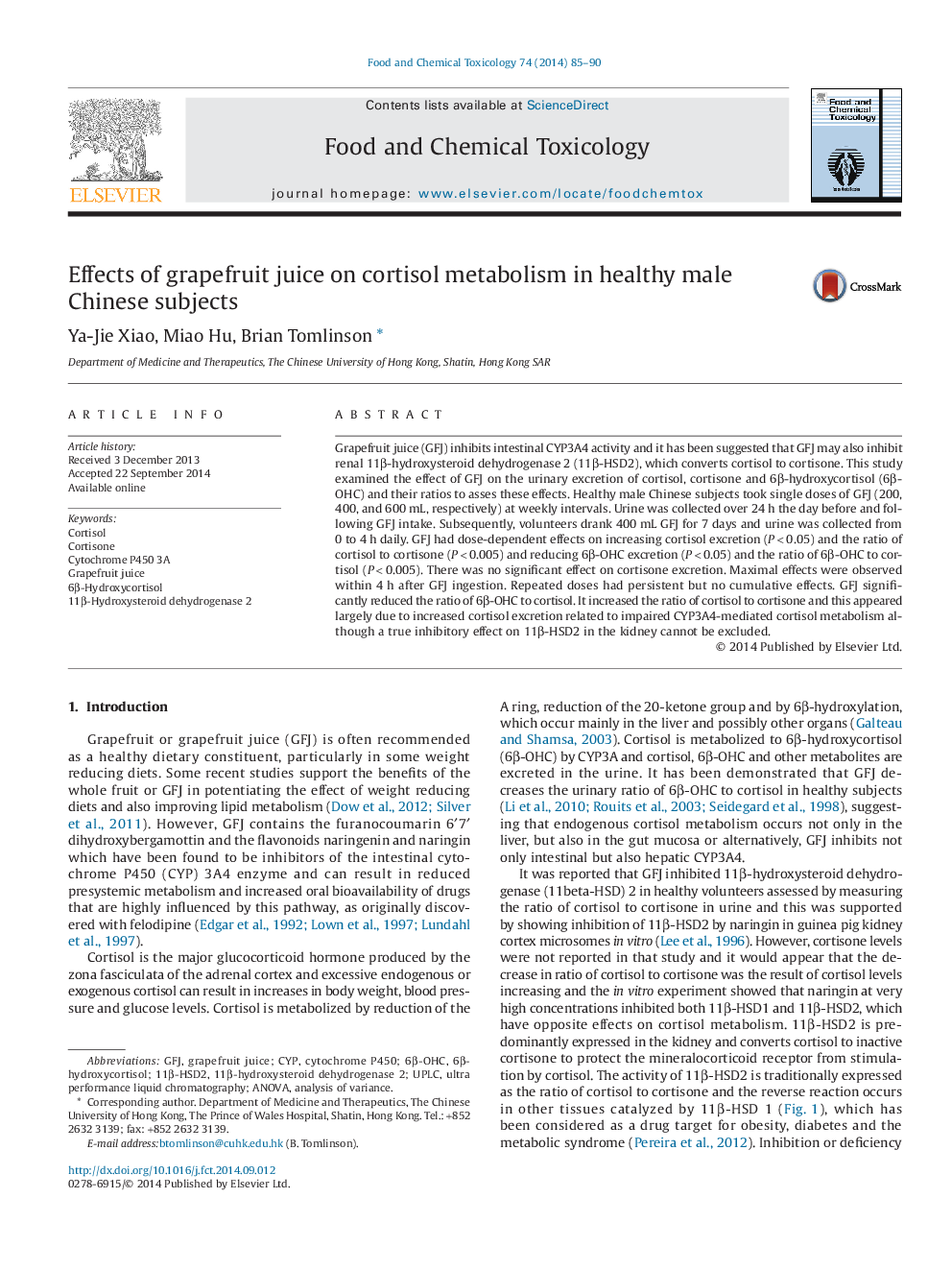| Article ID | Journal | Published Year | Pages | File Type |
|---|---|---|---|---|
| 5849957 | Food and Chemical Toxicology | 2014 | 6 Pages |
Abstract
Grapefruit juice (GFJ) inhibits intestinal CYP3A4 activity and it has been suggested that GFJ may also inhibit renal 11β-hydroxysteroid dehydrogenase 2 (11β-HSD2), which converts cortisol to cortisone. This study examined the effect of GFJ on the urinary excretion of cortisol, cortisone and 6β-hydroxycortisol (6β-OHC) and their ratios to asses these effects. Healthy male Chinese subjects took single doses of GFJ (200, 400, and 600âmL, respectively) at weekly intervals. Urine was collected over 24âh the day before and following GFJ intake. Subsequently, volunteers drank 400âmL GFJ for 7 days and urine was collected from 0 to 4âh daily. GFJ had dose-dependent effects on increasing cortisol excretion (Pâ<0.05) and the ratio of cortisol to cortisone (Pâ<0.005) and reducing 6β-OHC excretion (Pâ<0.05) and the ratio of 6β-OHC to cortisol (Pâ<0.005). There was no significant effect on cortisone excretion. Maximal effects were observed within 4âh after GFJ ingestion. Repeated doses had persistent but no cumulative effects. GFJ significantly reduced the ratio of 6β-OHC to cortisol. It increased the ratio of cortisol to cortisone and this appeared largely due to increased cortisol excretion related to impaired CYP3A4-mediated cortisol metabolism although a true inhibitory effect on 11β-HSD2 in the kidney cannot be excluded.
Keywords
Related Topics
Life Sciences
Agricultural and Biological Sciences
Food Science
Authors
Ya-Jie Xiao, Miao Hu, Brian Tomlinson,
